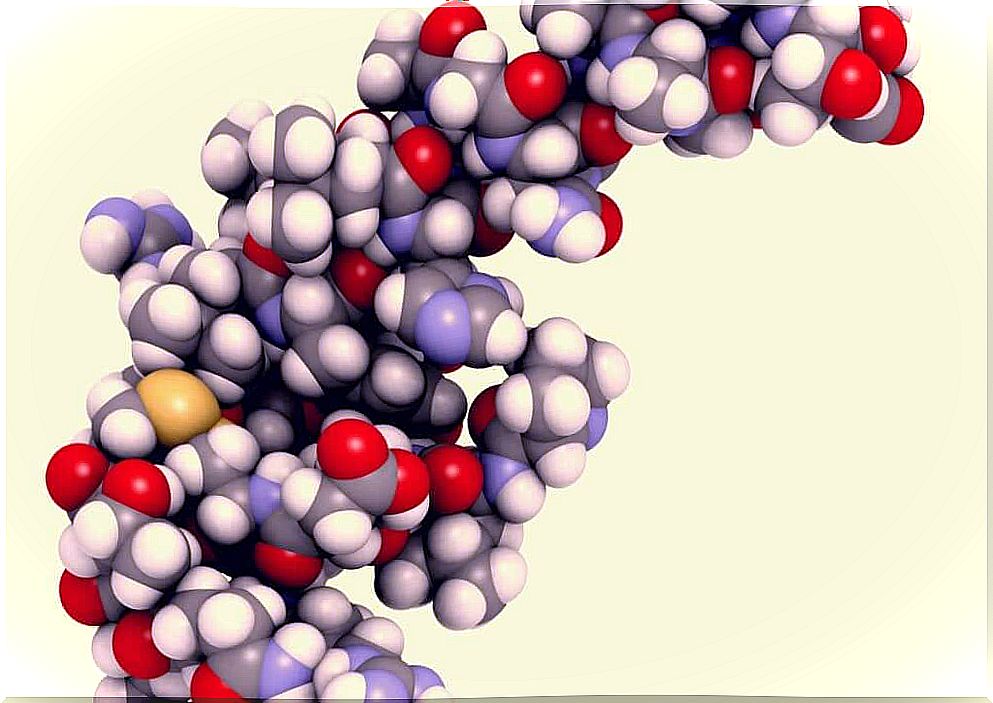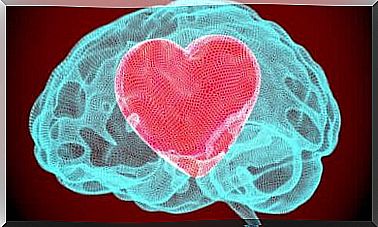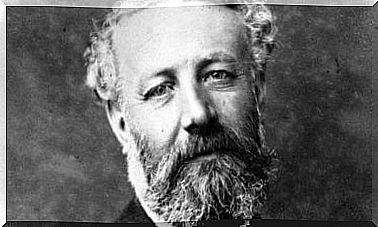Hypocretin: Characteristics And Functions

Hypocretin (or orexin) is a type of neuropeptide-stimulating hormone ; specifically, it is a polypeptide hormone found in the posterior hypothalamus. Its functions include inducing the feeling of hunger, stimulating wakefulness or alertness, and promoting a positive mood, among others. On the other hand, its high levels have been linked to sleep disorders such as insomnia or narcolepsy.
Some actions related to food and life habits can increase the presence of this hormone. Thus, practices such as sunbathing, exercising, consuming foods with lactate, restricting glucose and increasing fructose could stimulate its secretion.

What is hypocretin?
Hypocretin, also called orexin, is a type of neuropeptide-stimulating hormone that was discovered in the brains of rats by two researchers, according to Sakurai et al. (1998) and De Lecea et al. (1998).
It is a polypeptide neuronal hormone consisting of 30 amino acids. It is located in the hypothalamus, a brain structure involved in physiological functions such as appetite, libido and sleep regulation.
Functions of hypocretin
Initially, it was suggested that hypocretin was involved in stimulating food intake (ie, hunger). This was believed because central administration of this hormone, specifically orexin-A/hypocretin-1, was found to increase food intake.
Later, they also found that hypocretin stimulated insomnia, energy expenditure and wakefulness. Thus, we find different functions performed by this hormone.
Awake (alert state)
Hypocretin, or orexin, promotes alertness. Recent studies indicate that one of its relevant functions is to integrate the metabolic influences of circadian rhythm and sleep debt in order to determine whether an animal should be asleep or awake and active.
Specifically, it would strongly stimulate several brain nuclei, with important roles in insomnia (dopamine systems, acetylcholine, norepinephrine…). On the other hand, according to a study by Lin et al. (1999), a mutation in the orexin/hypocretin receptor causes canine sleep disorders, such as narcolepsy.
food intake
Hypocretin also serves the function of stimulating or increasing the craving for food. In this sense, it interacts with substances that promote its production. Specifically, hypocretin works by increasing its expression, locating itself in the arcuate nucleus of the hypothalamus.
On the other hand, some animal studies show that low levels of orexin cause obesity, and that this happens even when fewer calories are consumed.
Relationship to Alzheimer’s?
A study by Kang et al. (2009) linked hypocretin to Alzheimer’s disease. According to the study, the expression of beta-amyloid protein (a peptide that typically appears in Alzheimer’s), increases during the day and falls at night, and all of this is controlled by hypocretin.
It was found that sleep deprivation could be the cause of development boards beta amyloid. This same study also suggests that maintaining adequate periods of sleep or wakefulness could prevent Alzheimer’s disease.
Influence on good mood
Hypocretin is not only related to physiological functions, but also emotional ones. Thus, high levels are related to a positive mood as well as a feeling of happiness.
Anxiety and Addictions
It is believed that low levels of hypocretin influence the desire to smoke and drink alcohol, especially in cases of addiction. Furthermore, their presence has also been linked to brain reward mechanisms. It has been observed how an abnormally high activity of hypocretin triggers anxiety states that can lead to a relapse into toxin consumption.

How to stimulate hypocretin?
Some actions or habits in life can increase the presence of hypocretin in our body. Among them are:
- Sunbathing: Bright lights, like sunlight, increase hypocretin levels;
- Exercise: The acidification of the blood that occurs with exercise increases the hypocretin stimulus;
- Consuming foods with lactate: Lactate regulates hypocretin while increasing our energy;
- Restrict glucose and increase fructose: Elevated glucose levels can block the activity of orexin neurons.
In relation to what was mentioned, some foods that contain healthy glucose are pasta, whole grain bread, potatoes and pulses. Among foods with unhealthy glucose, we find white bread, snacks and fried foods, among others.
As we have seen, hypocretin is a hormone that has multiple functions, both physiological and psychological. Many have dubbed it “the good mood hormone” and, in that sense, it is associated with positive emotional states. It regulates emotions, mood and sleep/wake cycles, and is also linked to learning processes.
Finally, altered levels of this hormone are related to sleep disorders, obesity and even Alzheimer’s disease.








